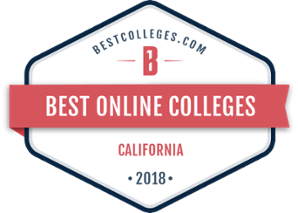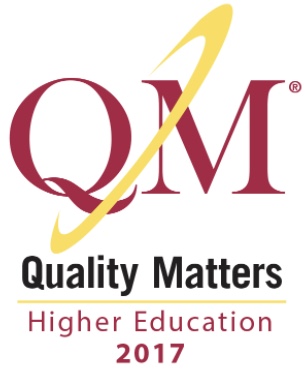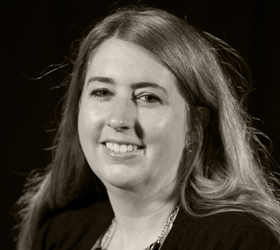Education that Moves You Forward
With Cal State East Bay's Path to Recreation Therapy Certification Program, you’ll be able to meet the “Therapeutic Recreation Content Coursework” and “Academic Internship” requirements for the credential as a Certified Therapeutic Recreation Specialist (CTRS) with the National Council for Therapeutic Recreation Certification (NCTRC).

Selected by the Best Colleges Review as one of the "Best Online Programs"

Certified courses by nationally-recognized Quality Matters (QM) Review Standards
Set Your Own Pace
Cal State East Bay’s Path to Recreation Therapy Certification Program is featured in a convenient online course format to fit your busy schedule. You’ll enjoy the flexibility of learning that enables you to take one to four classes per semester to advance your career.
Be an Agent of Change
As a professional recreation therapist, you’ll plan, direct, and coordinate recreation-based treatment programs for people with disabilities, injuries, or illnesses.
Recreation therapists use a variety of modalities, including arts and crafts, drama, music and dance, sports, aquatics, and community outings to help maintain or improve a patient’s physical, social, and emotional well-being.
Typical job responsibilities include:
- Helping patients learn social skills to become or remain independent
- Assessing patients’ needs using observation, medical records, tests, and discussions with other healthcare professionals and patients’ families
- Engaging patients in therapeutic activities, such as exercise, games, and community outings
- Teaching patients ways to cope with stress, anxiety, or depression
- Documenting and analyzing a patient’s progress
- Evaluating interventions for effectiveness
- Helping patients recover basic physical and mental abilities and build their confidence to socialize effectively and integrate into the community
- Working with physicians or surgeons, registered nurses, psychologists, social workers, physical therapists, teachers or occupational therapists
Occupational Trends
Employment of recreational therapists is projected to grow 4.3 percent from 2025 to 2035.
—Labor Market Analytics – Lightcast
The median annual wage for recreational therapists was $60,280 in 2024, with the top 10 percent earning more than $96,600.
—U.S. Bureau of Labor Statistics
The top three industries that employ the most recreational therapists are education and hospitals (state government), nursing care facilities, and general medical and surgical hospitals.
—Labor Market Analytics – Lightcast
Get Ahead in Your Career
Join the list of accomplished recreation therapists at some of the most prestigious treatment centers in the San Francisco Bay Area and beyond, including veteran hospitals, rehabilitation centers, correctional facilities, mental health facilities, senior independent living centers, skilled nursing facilities, schools, senior centers, and pediatric care facilities.
In meeting all credential requirements, you’ll also be able to sit for the national (NCTRC) certification exam.
Please note additional requirements are needed to fully qualify for the credential. If you’re interested in obtaining NCTRC certification (Path to Professional Certification), please see below for the requirements. For further information, visit the NCTRC website.
Path to Professional Certification:
- Academic Degree: Completion of a bachelor degree or higher
- Professional Content Coursework: Completion of 18 semester units on specific coursework in Recreational Therapy
- Supportive Coursework: Completion of 18 semester units of support coursework
- Professional Experience Requirements: Either an Academic Internship - Enrollment in or completion of an internship experience in accordance with the NCTRC Standards. (CSUEB requires a 600-hour internship experience) or Paid Professional Work Experience - Current employment or completion of paid professional work experience in accordance with the NCTRC Standards.
- Successful completion of the NCTRC Certification Exam
Program Objectives
At the completion of the program, you'll acquire:
The knowledge to interpret the stages of human development, principles of behavioral change, and models for delivery of recreation therapy programs and services.
The utilization of effective leadership and teamwork strategies, standards of practice, assessment techniques, and documentation requirements in recreation therapy.
The ability to articulate clearly in both written and oral formats the ethical, philosophical, historical, and administrative foundations of the recreation therapy profession.
The skills to identify techniques that contribute to a culture of dignity and respect in the recreation therapy profession, based on principles of access, inclusion, and independence.
Program Format
The Path to Recreation Therapy Certification Program is conveniently offered with an online course format and a 600-hour internship experience (REC 481). In order to successfully complete the program, you will need an internet connection and email capability. Courses are compatible with all major browsers and operating systems. The placement of the 600-hour internship experience will be done through the internship placement course (REC 476) that is typically taken two semesters ahead of anticipated internship experience.
Program Requirements
To complete the Path to Recreation Therapy Certification Program, simply complete all eight (8) courses with a “C-” or better while maintaining a minimum cumulative grade point average of 2.5 on all required coursework.
Courses Offered
Fall Semester
| Course | |
|---|---|
| REC 360: Foundations in Recreation Therapy (Online) | |
| REC 361: Recreation Therapy Diagnostic Groupings (Online) | |
| REC 362: Recreation Therapy Documentation and Assessment (Online) | |
| REC 476: Recreation Therapy Internship Placement (Online) Must be taken 2 semesters prior to anticipated internship experience | 1 |
| REC 481: Recreation Therapy Internship (600-hour Internship Experience) Only can be taken after completing all other courses | 6 |
Spring Semester
| Course | |
|---|---|
| REC 360: Foundations in Recreation Therapy (Online) | 3 |
| REC 363: Recreation Therapy Process & Techniques (Online) | |
| REC 364: Recreation Therapy Program Planning and Implementation (Online) | |
| REC 365: Advancement of RT Profession & Management (Online) | |
| REC 476: Recreation Therapy Internship Placement (Online) Must be taken 2 semesters prior to anticipated internship experience | 1 |
| REC 481: Recreation Therapy Internship (600-hour Internship Experience) Only can be taken after completing all other courses | 6 |
Summer Term
| Course | |
|---|---|
| REC 360: Foundations in Recreation Therapy (Online - depending on availability) | |
| REC 476: Recreation Therapy Internship Placement (Online) Must be taken 2 semesters prior to anticipated internship experience | 1 |
| REC 481: Recreation Therapy Internship (600-hour Internship Experience) Only can be taken after completing all other courses | 6 |
Featured Faculty
Admission Requirements
To be considered for admission to the program, you must hold a minimum of a bachelor’s degree with a minimum 2.5 overall GPA and have supportive coursework in-progress or completed (see Supportive Coursework Requirement below); and having recreation therapy work experience is a plus. Note: All supportive coursework must be completed with C- or better prior to the start of the program if accepted.
Supportive Coursework Requirement
A total 18 semester hours of support coursework with a minimum of:
- Three (3) semester hours coursework in the content area of anatomy and physiology
- Three (3) semester hours coursework in the content area of abnormal psychology
- Three (3) semester hours coursework in the content area of human growth and development across the lifespan.
- The remaining semester hours of coursework must be fulfilled in the content areas of social sciences and humanities.
Note: Meeting all application requirements does not guarantee admission. It is at the discretion of the Review Committee to approve or deny your admission based on grades, GPA, courses taken, qualification, letter of recommendations, past experience(s), availability of admission, etc.
Applying to the Program
The application for admission to the program is open year-round. New students are admitted to the program three times a year, in fall, spring, or summer term.
How to Apply
To apply to the program, complete the application form below, as well as submit the following documents by email:
- Your current résumé
- Two (2) letters of recommendation
- Request to have your official transcript(s) that indicate your degree awarded be sent to the email: erick.kong@csueastbay.edu
All documents must be emailed to Dr. Erick Kong at: erick.kong@csueastbay.edu
Cal State East Bay
Department of Hospitality, Recreation and Tourism
ATTN: Dr. Erick Kong
25800 Carlos Bee Boulevard, PE 130
Hayward, CA 94542
Admission Deadlines
| Term | Application Period | Transcripts & Other Documents Due |
|---|---|---|
| Fall 2026 | 12/9/25-7/6/26 | 7/6/26 |
Still have some unanswered questions? Visit the Support section for additional program information. »
At Cal State East Bay, we pride ourselves on putting students first, from the moment you inquire until you graduate. We hope you've found answers to your questions in this support center, but if not, please get in touch.

